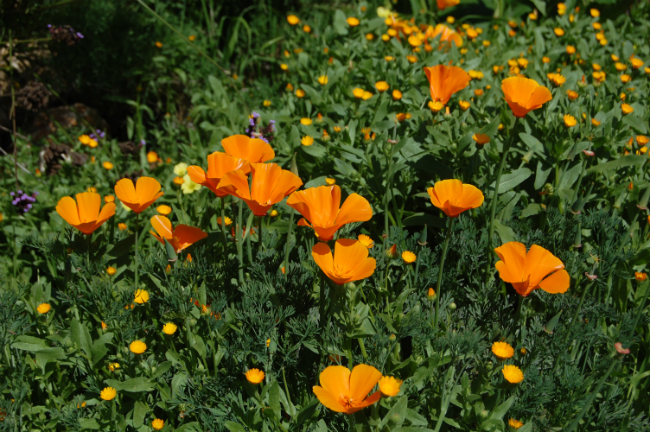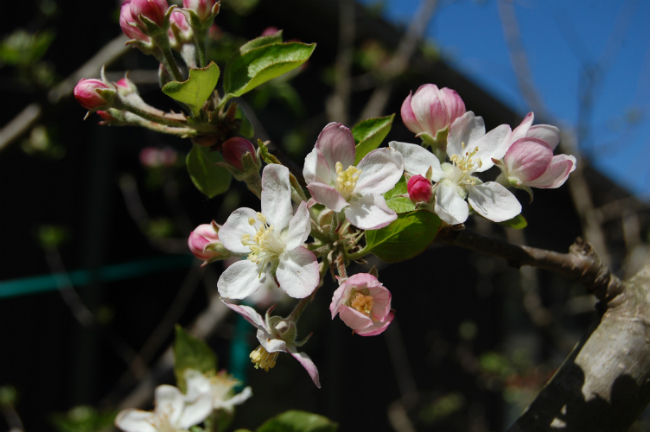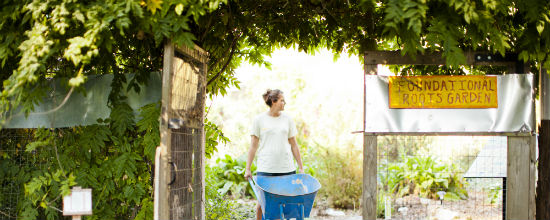Testimonials
"Walking down the hall of the house I would be living in for the next three quarters, I read off the name of each resident: Tyler, Sam, Forrest, Emily, Andrew, Leah, Sarah, Hannah, Jordan. This was my first experience in PICA before anyone else was there, I wondered what the year would bring.
The year started off great with everyone being friendly and really helpful. During the first couple weeks of school, I would come home and was greeted by paintings being put up everywhere. For the first time since second grade I painted, and it was incredibly therapeutic.
PICA was one of the most diverse group of people that I had found on campus. From Literature to Botany, Latin American Studies to Chemistry there was as many different majors as there were hometowns. Everyone had very different life experiences, and destinations in the world, but we were united in caring about the impacts we would make in it. I was able to learn many different skills concerning group living, cooking and gardening. Most importantly to me is that I was able to make friendships that I will always have. For the next two years, I was able to live and work with a large group of former PICAns.
Using the skills we had come to PICA with and learned during our year there we were able set up two different intentional living communities. We were able to turn areas formerly occupied by trashy college parties into productive gardens and chicken areas. During our time in these houses, we became valued members in our communities, rather than the barely tolerable college loud dumps that so many college houses turn in to.
PICA was a community that shaped my college career much more beneficially than I thought possible. Without it I probably would have gone to the transfer dorms and lived the normal college experience. Instead I was able to make an impact of the community that I could be proud of."
-Forrest Verde-Green

"For two years I lived at the Program in Community and Agroecology (PICA) in the Village. PICA aims to educate and engage local and global communities and promote the practice of sustainable and equitable food systems. In particular, it enables students to look up from their rigorous coursework and contemplate how social and food justice influences our everyday lives.
Both years I lived in PICA I worked as a community coordinator for both PICA and UCSC Housing department. The Village Housing department works to institute campus-wide programs of multiculturalism, drug-free and safety campaigns while providing adequate housing for the concentrated student. PICA’s goal is to awaken students from their rigorous routine to contemplate how micro-change within their everyday lives affects points of political contention within social justice and environmental activism. While I was a community coordinator I mediated the divide between these two systems. Although UCSC Housing and PICA ostensibly have parallel interests, there were a few times when their interests diverged, both had the interest of the students in mind, but with different methodologies. Housing cast broader stroke, their efforts were self-respected depending on the sheer number of students involved in their events. PICA’s leadership team and staff mentors had the ability to communicate directly with individual students, and interactions took on a more personal quality. Its my opinion that the two establishments complemented each other quite well.
I also mediated a myriad of student concerns, everything from neighbor noisiness to a gardener snake in the free pile. The two years I lived in PICA took on very different forms and resulted in distinct dynamic communities.
My first year I was the youngest student in the PICA houses that house 36 individuals (and accommodate many more). Most of my neighbors were graduating from college that year, in various majors (environmental studies, history, linguistics, politics, computer science, etc.). The daily tactics to leading a sustainable life were constantly contextualized in a society that moved so quickly sometimes there was no time to contemplate where a yogurt cup goes when your finished with it. Their sharp analysis, and no-nonsense spin on environmental activism was intimidating as well as inspiring. The world is full of contradictions, we may eat a burger while petting our lovely dog, and at time these contradictions can be confusing. But it was this year, with these people, that I learned to revel in these contradictions, the contemplations that make us human. It is these contemplations that convince us we don’t have the answers to every qualm. It is these contradictions that bred a passion and fire in my neighbors and made commonplace conversations in the kitchenettes worth every second. They respected my humble authority as community coordinator and often helped me contextualize my efforts to craft community cohesion.

My first year in PICA I walked around the mini-orchard with a ripe mutsu apple in my mouth. consumed by wild wonder at how I got to be in this oasis of flowers and fruits. It is this sentiment that pervaded the atmosphere when the PICAns of 2011 moved in(my second year in PICA). It was this group that seemed to loose themselves in the daffodil walkway and the rosemary trellis. It is this group of folks I find myself surrounded with to this day.
I was one of the few students to see those two years through. It feels as if my first year is a simply memory since those former PICAns have dispersed throughout the United States. I was taught how to garden by students practicing their environmental interpretation skills. Their capacity to make gardening a means of understanding natural cyclical processes, medicinal healing, and healthy eating, inspired me to learn the science/art of plant propagation, garden coordination, and soil cultivation and slowly I became a teacher myself.
With the help of PICA’s leadership team (students dedicated to the everyday maintenance of a garden) I planned various events related to sustainable living (Permaculture Workshop, Native Plant Identification Hike, Pruning Workshop, Fermentation Class, Bread Baking Class, A Lecture from the founder of The Himalayan Farm Project, a trip to Steve Gliessman’s olive orchard/ vineyard to tend to the vines and trees - during which we also learned to cure the most delicious olives -, a natural history trip to Hastings Reserve, a Medicinal Plants tour for a group of Post-Graduate Medical Students, the creation of an herb spiral and Weekly Garden Workdays).
The organic garden at PICA can feed 40 students/staff and is supported by a weekly compost system and a full greenhouse. In order to keep it all going we held weekly garden work days. I spent every weekend with a new group of people excited about gardening but waiting to be told just how to go about it. And although gardening is a very forgiving task, the real hurdle was instilling confidence in volunteers and encouraging them to give something new a try. PICA urged me to take on a leadership role. I took a liking to it, coordinating many people, with various skill sets, in a dance that results in an accomplished, usually delicious, outcome.
Not to be forgotten in this equation that makes for an ideal learning and growing environment are the PICA staff members. Mira Michelle, Bee Vadakan, Bethany Hetch, and Steve Gliessman made all of this possible as their interests did not sway seasonally or drop off around finals time. Without stability there would not be a garden, without steady, gentle comfort a plant will not sprout. It was these mentors that contextualized our experience within the quickly evolving subject of agroecology and encouraged us forward.
This is my final year at the University of California, Santa Cruz. I have completed my studies of Evolutionary and Ecological Biology and I sincerely believe PICA sparked my confidence and encouraged me to pursue my strong suits. Throughout my career as an ecologist I hope to foster networks of communication, connecting vast knowledges across many subjects in the pursuit of environmental activism. PICA has instilled in me the confidence to realize this ambition."
-Simone Albuquerque


